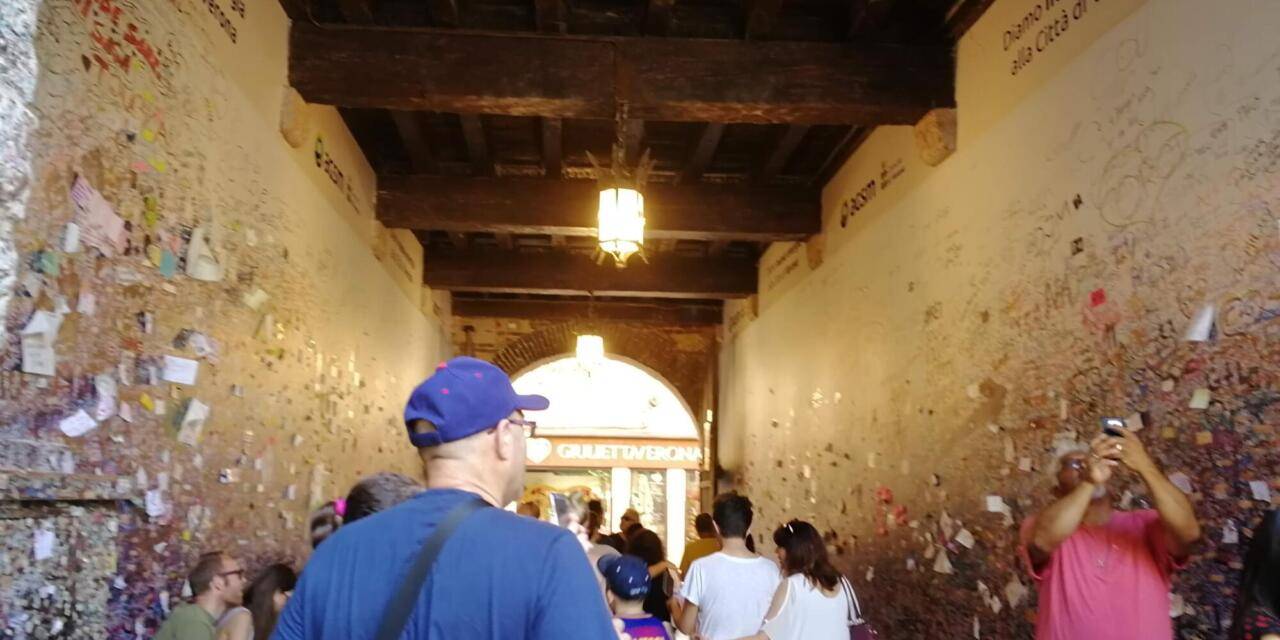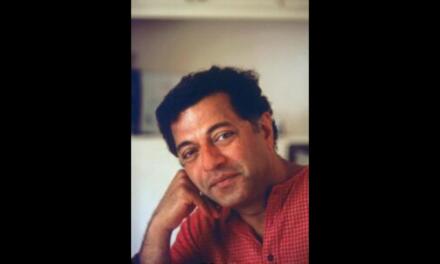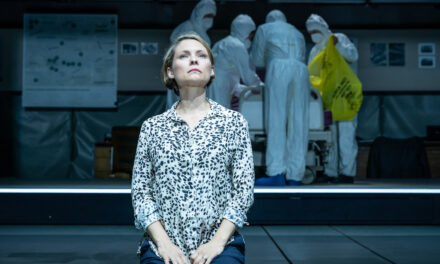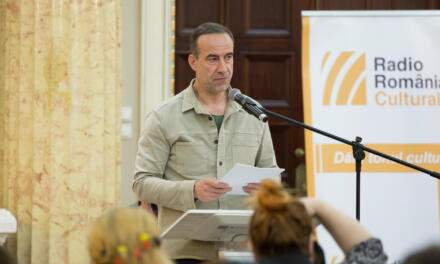Europa jest wielojęzyczna. Europe – as a geopolitical concept, its residents, communities, and countries – is a multilingual space where people communicate in multiple languages such as Polish Sign Language, Ukrainian, Arabic, Tamazight, Spanish, Sami, Greek, and Shelta. These languages may arise from ethnicity, a country, or a region but also from disability contexts. They interact within multiple physical, geographical, socio-political, and virtual spaces. In my book Multilingual Dramaturgies: Towards New European Theatre (Palgrave, 2024), I study what possibilities these linguistic interactions open for theatre. Focusing on dramaturgical in contemporary multilingual theatre in Europe, I discuss creative and political tasks of staging multilingualism and engaging the audience and practical issues like funding and developing working models. At the heart of the book are the dialogues with artists and the idea that this exciting theatre practice has a central role in Europe’s futures. So for this article, I asked artists of diverse background and career levels:
What Roles Can Multilingual Dramaturgies Play in European Future(s)?
Jan Lauwers, Director, Playwright, Needcompany (Belgium)
Very difficult question. The longing for a singular identity is one of the most difficult problems today. Multilingual dramaturgy has to start from ‘identities’, plural. When language becomes a singular identity, it is always exclusive. Multilingual dramaturgy always starts from a minority. Swedish, Dutch or people from Finland are forced to learn other languages. An American or Spanish person has not this urge.
The influence of Netflix and other streaming platforms: again, minorities see a series or a movie in the original language with surtitles. Americans or French, Spanish people look at it in dubbed versions which means they never even hear other languages.
To be in inclusive in theatre: minority writers, actors, directors who want to trespass the borders of nationalism have to realize that they create a new minority: the inclusive minority.
Anna Haglund, Annica Styrke and Karin Wiklund, Performing Arts Creators (Sweden)
Multilingualism is a part of our past, present and future. A performing arts field that reflects that reality, and uses multilingualism as an artistic point of departure, can change exclusionary norms as well as creating spaces where the collective experience of performing art is not conditioned by the unequal access to language.
We apply something we call “no special business”. By this approach, multilingualism is not made into a main number of the experience. It is simply a question of accessibility, an uncommented condition. In our immersive performance The Choreography, the audience participates through wearing headphones in which they receive instructions. The performance is available in 14 different languages, and in the beginning everybody gets to choose language from a list. No language is treated as the main one, everyone gets the same question: “Which language would you like to listen to?”. The performance is then carried out in all the different chosen languages simultaneously, but no one notices. To the ones listening in Swedish, the performance is in Swedish. To the ones listening in Sorani, it is in Sorani. This kind of performance situation can create strong, collective and equal experiences between people who otherwise might not even have the means to communicate with each other.
The realisation of The Choreography in several different languages was part of the project The Choreography – Interactivity, Language and Integration. The project made us aware of the intricate ways multilingualism treads right through political, cultural and emotional aspects of human identity. To explore these intersections, to collect and spread knowledge about the academic, artistic and experience-based fields surrounding them, we put together the publication Antologi för en flerspråkig scenkonst (Anthology for a multilingual performing arts). The book sprawls across topics such as language, multilingualism, performing arts, body and power with contributors being choreographers, sociolinguists, educators, psychology researchers, playwrights, activists, translators, philosophers, directors, among others. It is broad – like a fan of knowledge and experience – for that is also how we perceive the field of multilingual performing arts.
Our work has made clear that the close connection between identity, body and language cannot be underestimated. To be mirrored and represented through language is to be seen as human, both as audience and performer. In an increasingly polarised time, where language barriers often become part of an othering, we have a great possibility, and responsibility, of using multilingual dramaturgies to create utopian spaces where the participants can meet in equality and art.
Guy Elhanan, Theatre-maker and Educator (Israel-Palestine)
I believe multilingual dramaturgies could assume the much-needed role of imagining a just future for Europe, and for the people in it and around. I am an Israeli actor who works in Arabic. We aren’t many. Most of us hide it. My play Over And Under The Scaffolding is imagining that future.
Heidi Wiley, Executive Director, European Theatre Convention
Multilingual dramaturgies have enormous potential when used as door-opener to access Europe’s rich cultural scene and the European way of life, to cosmopolitan areas where the mix of various languages is part of street sounds, and to the most distant country, whose language sounds are as yet unknown to me.
Sir David Pountney, International Opera Director, Librettist, Translator (UK)
Multilingualism can be a very enriching thing, but it is not something that I would prioritise or seek to create. For me, it has to grow out of genuinely multilingual content and context.
Vanja Hamidi Isacson, Playwright and Dramaturg (Sweden)
I think theatre has to include all experiences and all people and ways of speaking and being. If the societies and theatre are going to evolve, we have to include this multilingual, multicultural approach, and not to isolate languages and cultures. Of course, there are strong forces against that. But for the theatre, as we are working with arts and the creativity, we can use this and include in our work, and that could influence other domains as well. Because it is important that people that are multilingual can see performances that include their experiences, this way of being and talking, to make it visible and not something hidden. A lot of people tend to think that there should be a perfect grammatical language spoken on the stage. But why?
Ida Casilli, Transnational Producer, Director, Performer (UK/Italy)
Our languages are part of our social and cultural identities. Having been exposed to multiple languages as a young person, and lately as a creative, I realized how each of them had created some sort of coding in my brain to define emotions and life events as I experienced them.
Translating a play or a book entails recoding an entire thought process, that contains a myriad of variables, sometimes untranslatable. So if a rose by any other name would smell as sweet, would Giulietta from Venezia call her Romeo tesoro mio or my love? This is a question my multilingual acting students always have to answer to.
The multilingual process of creation makes each culture so special and truthful. This is particularly important for bilingual or diverse artists trying to embed a cultural and ethical conversation in their work. Let Giulietta know she can call her Romeo anything she wants or better come preferisce!
Christy Romer, Communication Manager, European Theatre Convention
It often takes leaving one language, and spending time fully immersed in another, to truly appreciate the richness of our own words and phrases. Beautiful sounds and rhythms get dulled by years of unconscious use. Adding a dramatic narrative to that experience is just… a joy.
Angelina Schwammerlin, Musician and Sound Artist (Austria)
This is the theatre of the future, which communicates a cosmopolitan idea through multilingual dramaturgies.
Helgard Haug, Theatre Author and Director, Rimini Protokoll (Germany)
Multilingualism opens theatres to people that are not typically on the stage, languages you usually don’t hear, and perspectives you don’t share and are not common.
Thomas Bredsdorff, Dramaturg, Professor of Scandinavian Literature (Denmark)
If we are to counter the nationalism that is rampant in Hungary, Denmark, everywhere, if the European Union is ever going to be something real, rather than just members in Brussels, then multilingualism is one means of achieving it. By showing that you can work together, understanding not the actual language, but some human language underneath; language which everybody understands once they open their eyes. In this sense, Odin’s multilingual theatre is an ambassador for the future.
Eugenio Barba, Odin Teatret
Multilingual theatre is a way for us – actors from different languages in a country where we did not speak the language – a way to earn our daily bread. It is an earth-bound issue. There are, of course, the consequences that can be described like that is the theatre of the future, but I doubt it. I think it depends on the performance, because if you do not orchestrate a performance in such a way that is multilingual universe, it becomes a cacophony and something disturbing.
Julia Varley, Actor, Director, Writer, Odin Teatret
Multilingualism is not the aim. It has to be about maintaining the natural voice. So the voice, which is really tied to your experience, your life, your way of being, and not a kind of artificial voice which is made just for theatre. Our theatre travels to many parts of the world and we can speak many languages. But it is equally important to have performances, which are local, like made for the local population, to feature dialects, accents, local languages that are rarely spoken.
Kristina Werner, International Theatre Facilitator and Director (Germany/Russia)
Multilingual dramaturgies allow to bring many perspectives on one stage, and connect people despite their different backgrounds, cultures, or worldviews. Because when people with different languages are in one room, and we can still find ways to communicate, it gives a common ground from which you can start creating something new.
Radosław Rychcik, Director and Dramaturg (Poland)
Multilingual theatre allows you to realize that you’re speaking the same language, that rewriting Polish themes in another language only serves to enrich them – making these themes no longer only Polish. We enter into another tradition, and join a kind of European family.
Nina Thunnissen, Dramaturg, Tryater (Friesland/Netherlands)
Multilingualism is one of the aspects that reflects the diversity of today’s society. Minority language speakers have a profound understanding of the cultural value of language. It defines their sense of identity. Multilingualism, playing with language, can open up your world and broaden your imagination, like art itself.
Pedro de Senna, Theatre-Maker, Translator, and Scholar (Brazil/UK)
Multilingual dramaturgies are fundamental in European future. The retrenchment of nationalisms across Europe makes it more necessary than ever to make theatre that brings people together from across countries, and from different linguistic communities within countries. The challenge is always to create something that does not, however, simply serve audiences that may be described as composed by the “global intellectual”, “multicultural from an ethnic-linguistic point of view, [but which] is generally part of a theatrical mono-culture; it speaks and understands the ‘language of theatre’” (Senna de, “When Creation” 204).
Adam Ziajski, Director (Poland)
The world is a Tower of Babel, where all languages become mixed up. It’s important for theatre to find the quintessence of language somewhere in this chaos. For two people to begin to understand and feel in the same way is a step in the direction of community … of feeling, of thoughts, of convictions, but a community where we have the space to be different, where multiplicity offers the chance to build mutual respect…
Niclas Turesson, Theatre-Maker (Sweden)
It’s the way to get to know the people that are coming here, the way we get to know the Shakespeare world; because we don’t know that much. How many people can name four main cities in Iraq? And you need the language, and you need to be able to allow people to work in their language, because when they work in a European language it’s not as good. We have to take care of it as a society; we need to recognise the importance of language and meeting. But we need to be prepared to fail at first and be patient, trust the process. What is a failure? You could say that when a big theatre in Sweden has an actor on stage painted with brown paint, that’s a fail. What I am saying multilingual theatre is not easy. But we have to try.
Anne Bérélowitch, Theatre-Maker, Instant Mix (France)
Multilingual theatre is an opportunity to make Europe.
Isolte Ávila, International Signdance Artist, Signdance Collective International (Cuba/UK/Croatia)
Good for Europe!
Ana Bayat, International Multilingual Storyteller
Now, more than ever, it is crucial to act inclusive by involving multilingual talent of any origin in all areas of dramaturgy as researchers, editors, consultants, writers, translators, directors, producers, artists, designers, critics, etc., so that today’s Europe and its future is a true reflection of the global village in which we live. Multilingualism strengthens and enriches societies.
Paula Rodriguez, International Performer, Teatro Inverso (Spain/UK)
It’s really important that in Europe we don’t only share the economical laws, but also that we do intense cultural exchange. It’s the only option we have.
Steven Heene, Dramaturg/Artistic Coordinator NTGent (Belgium)
Freedom. Provocation. Enlightenment. Tenderness. Urgency.
Dialogue. Empowerment. Re-enactment. Transparency. Musicality.
Perspective. Choir. Monologue. Deconstruction. Suggestion.
Silence. Eloquence. Darkness. Tradition. Love.
Access. Dynamics. Edit. Tragedy. Absurdity.
Contrast. Conviction. Research. Multi-layered. Intuition.
Representation. Collective. Memories. Ownership. Authorship.
Poetry. Space. Release. Distortion. Experiment.
Balance. Surprise. Breathing. Mystery. Comment.
Alienation. Resistance. Contemplation. Hope. Solidarity.
This post was written by the author in their personal capacity.The opinions expressed in this article are the author’s own and do not reflect the view of The Theatre Times, their staff or collaborators.
This post was written by Kasia Lech.
The views expressed here belong to the author and do not necessarily reflect our views and opinions.


















